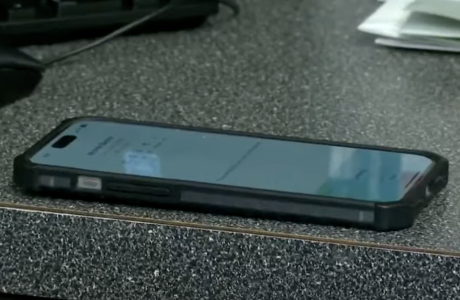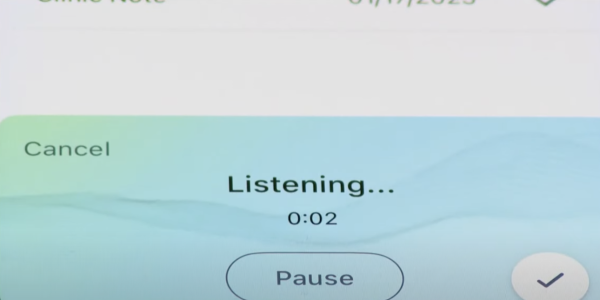‘I said no’: New AI requests put pressure on Aussie GPs. Here’s why it matters to you.
- Replies 5
If you’ve visited your local GP lately, you might have noticed a new form sliding across the reception desk—one that’s got Aussies talking, and not always in a good way.
The form in question? A consent slip asking if you’re happy for your doctor to use an 'AI Scribe' to take notes during your appointment. It’s a sign of the times, but is it a step forward or a cause for concern?
Let’s break down what’s happening, why it matters, and what you should know before you sign anything.
Gone are the days when your doctor’s only tools were a stethoscope and a trusty pen. Now, artificial intelligence is making its way into the consulting room, promising to help GPs by automatically transcribing and summarising your visit.
The idea is simple: less time spent on paperwork means more time for patient care, and less risk of doctor burnout.
But as with any new technology, there’s a catch—or at least, a few raised eyebrows.
One Aussie recently took to social media to share their experience: 'Went to GP today and the receptionist asked me if I want to sign the ‘AI Medical Note-Taking consent form’ with AI Scribe.'

Their response? A firm 'no,' citing concerns about privacy and data security.
And they’re not alone. Many people are wondering: Where is my sensitive health data being stored? Who can access it?
Is it kept in Australia, or is it floating around in a server overseas? These are valid questions, especially in an age where data breaches seem to make headlines every other week.
Another commnenter chimed in, saying, ‘I would be asking for their privacy policy, and details of the company and any info on where the AI is hosted. There is far too little info on this page to make an informed decision. And I’d be telling them that. Good on you for saying no. I bet a lot will just sign it and not think.’
Some commenters pointed out another risk: accuracy. If a doctor relies too heavily on AI-generated notes and doesn’t double-check them, mistakes could slip through the cracks—potentially with serious consequences. One said, ‘Another huge problem is accuracy - if the physician doesn’t review their notes properly, people will literally die.’
According to The Royal Australian College of General Practitioners, AI scribes are designed to help, not replace, doctors. They summarise visits to reduce admin and help prevent burnout, but the technology is still evolving.
Dr Sam Hay, a GP and medical commentator, says he’s already using AI scribes in his practice. ‘The reality is that the whole world is progressing, and AI is here to stay, so we should be focusing on adapting rather than combating.’

'They capture more information than we’re able to write down in the notes both during and after the consultation. It makes for more comprehensive and medically legal sound documentation,' he explains.
But Dr Hay also stresses the importance of caution. 'No doctor should be using this technology to diagnose and provide management plans,' he says. The AI is there to help with note-taking, not to make medical decisions.
He also points out that it’s crucial for any AI system to be encrypted, stored in Australia, and compliant with local regulations. Ideally, the data should be deleted once it’s safely transferred into your medical record.
AI is already transforming many aspects of our lives, from online shopping to banking, and now, healthcare. Used wisely, it can help doctors spend more time with patients and less time on paperwork. But as with any new tool, it’s important to balance convenience with caution.
For older Australians, who may already feel overwhelmed by the pace of technological change, these new developments can be especially daunting. But remember: you have the right to ask questions, seek reassurance, and make choices that feel right for you.
Read more: Modern technology could put your medical data at risk, legal expert warns

Have you been asked to sign an AI scribe consent form at your GP? How do you feel about artificial intelligence being used in your medical appointments? Are you excited by the possibilities, or do you have concerns about privacy and accuracy? Share your comments below and join the conversation with your fellow Seniors Discount Club members!
The form in question? A consent slip asking if you’re happy for your doctor to use an 'AI Scribe' to take notes during your appointment. It’s a sign of the times, but is it a step forward or a cause for concern?
Let’s break down what’s happening, why it matters, and what you should know before you sign anything.
Gone are the days when your doctor’s only tools were a stethoscope and a trusty pen. Now, artificial intelligence is making its way into the consulting room, promising to help GPs by automatically transcribing and summarising your visit.
The idea is simple: less time spent on paperwork means more time for patient care, and less risk of doctor burnout.
But as with any new technology, there’s a catch—or at least, a few raised eyebrows.
One Aussie recently took to social media to share their experience: 'Went to GP today and the receptionist asked me if I want to sign the ‘AI Medical Note-Taking consent form’ with AI Scribe.'

Some Aussie GP clinics are now asking patients to sign consent forms allowing the use of AI scribes during medical visits, sparking debate and concern online. Image source: CBS New York / Youtube. Disclaimer: This is a free use image used for illustrative purposes only and does not depict the actual person, item, or event described.
Their response? A firm 'no,' citing concerns about privacy and data security.
And they’re not alone. Many people are wondering: Where is my sensitive health data being stored? Who can access it?
Is it kept in Australia, or is it floating around in a server overseas? These are valid questions, especially in an age where data breaches seem to make headlines every other week.
Another commnenter chimed in, saying, ‘I would be asking for their privacy policy, and details of the company and any info on where the AI is hosted. There is far too little info on this page to make an informed decision. And I’d be telling them that. Good on you for saying no. I bet a lot will just sign it and not think.’
Some commenters pointed out another risk: accuracy. If a doctor relies too heavily on AI-generated notes and doesn’t double-check them, mistakes could slip through the cracks—potentially with serious consequences. One said, ‘Another huge problem is accuracy - if the physician doesn’t review their notes properly, people will literally die.’
According to The Royal Australian College of General Practitioners, AI scribes are designed to help, not replace, doctors. They summarise visits to reduce admin and help prevent burnout, but the technology is still evolving.
Dr Sam Hay, a GP and medical commentator, says he’s already using AI scribes in his practice. ‘The reality is that the whole world is progressing, and AI is here to stay, so we should be focusing on adapting rather than combating.’

Many patients are worried about data privacy, possible breaches, and a lack of clear information about where and how their medical data is stored and accessed. mage source: CBS New York / Youtube. Disclaimer: This is a free use image used for illustrative purposes only and does not depict the actual person, item, or event described.
'They capture more information than we’re able to write down in the notes both during and after the consultation. It makes for more comprehensive and medically legal sound documentation,' he explains.
But Dr Hay also stresses the importance of caution. 'No doctor should be using this technology to diagnose and provide management plans,' he says. The AI is there to help with note-taking, not to make medical decisions.
He also points out that it’s crucial for any AI system to be encrypted, stored in Australia, and compliant with local regulations. Ideally, the data should be deleted once it’s safely transferred into your medical record.
AI is already transforming many aspects of our lives, from online shopping to banking, and now, healthcare. Used wisely, it can help doctors spend more time with patients and less time on paperwork. But as with any new tool, it’s important to balance convenience with caution.
For older Australians, who may already feel overwhelmed by the pace of technological change, these new developments can be especially daunting. But remember: you have the right to ask questions, seek reassurance, and make choices that feel right for you.
Read more: Modern technology could put your medical data at risk, legal expert warns
Key Takeaways
- Some Aussie GP clinics are now asking patients to sign consent forms allowing the use of AI scribes during medical visits, sparking debate and concern online.
- Many patients are worried about data privacy, possible breaches, and a lack of clear information about where and how their medical data is stored and accessed.
- The Royal Australian College of General Practitioners acknowledges AI scribes can help reduce doctor burnout and improve documentation, but privacy and accuracy concerns remain.
- Doctors and experts advise patients to be informed and cautious about AI scribe use in healthcare, ensuring proper encryption, local data storage, and compliance with Australian regulations.
Have you been asked to sign an AI scribe consent form at your GP? How do you feel about artificial intelligence being used in your medical appointments? Are you excited by the possibilities, or do you have concerns about privacy and accuracy? Share your comments below and join the conversation with your fellow Seniors Discount Club members!







